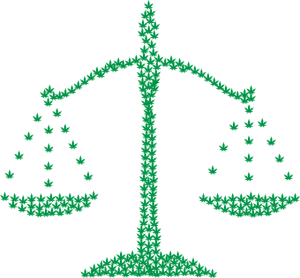In today’s day and age, most of us know someone who has gotten in trouble for actions directly related to their substance use. When our loved one has been diagnosed with a substance use disorder, the chances of legal implications may even increase. This does not mean that if you engage in substance use or drinking or if you have an addiction, you will also have legal issues. Often, these legal consequences have to do with CPS involvement due to a parent’s, or parents’, substance use. Unfortunately, a lot of the legal ramifications do not include treatment or education about substance use disorders, so individuals go back out into the world and commit similar crimes over and over. Drug court is an option for some who have gotten in trouble legally for behaviors involving their drinking or substance use.
What is Drug Court?

As of June 2015, 3,000 drug courts exist in the United States. They each have different target populations, plans, strategies, and case management resources. Even so, they tend to all model their programs off an inclusive model. This set-up includes:
- Criminal screenings to calculate the individual’s risks, requirements, and responsivity
- Legal communications
- Watching for any drug use through means such as drug testing and supervision
- Progressed sanctions and encouragements
- Treatment and rehabilitation services
Drug court is a step down from jail or prison. For those who are not considered to be violent offenders, drug court is a much more viable option for society due to the costs of incarcerating an individual. These programs encourage a form of educational treatment instead of simply locking a person up. Along with an emphasis on recovery, drug courts attempt to diminish the chance of any future legal ramifications from substance use or drinking. Individuals involved in these programs are obligated to abstain from all substance engagement, to hold themselves responsible for any actions they engage in, and to complete all legal consequences regarding the crimes they have committed.
These programs are typically run by a multidisciplinary lineup. This team tends to include judges, prosecutors, and defense attorneys. Drug courts also tend to be managed by community corrections workers, social workers, and other trained service workers.
An Oregon study demonstrated decreased re-offense arrests for substance-related crimes after an individual goes through drug court. While second offenses can vary year by year, recidivism decreased by 17-26% on average, which is still significant. This study also claims that drug court keeps societal costs down. Per individual member, societal savings of $6,744 were averaged for those attending drug court versus being incarcerated. That does not even include the cost of victimization.
An Alternative Option to Help Me Gain My Sobriety
Alcohol, cannabis, opiates, stimulants, and other illicit substances are often used incorrectly in America today. Substance use inhibits our impulse control and leaves us more vulnerable to legal implications. We want you to be able to get the help you need before it comes down to a plethora of tickets, incarcerations, or other legal difficulties. At Discovery Place in Burns, Tennessee, we offer an alternative program that focuses on a 12-Step philosophy to aid in abstaining from alcohol and other drugs. We offer a variety of programs, including a 30-day residential addiction recovery program and a long term recovery program. Get help today! Call us at 1-800-725-0922.

